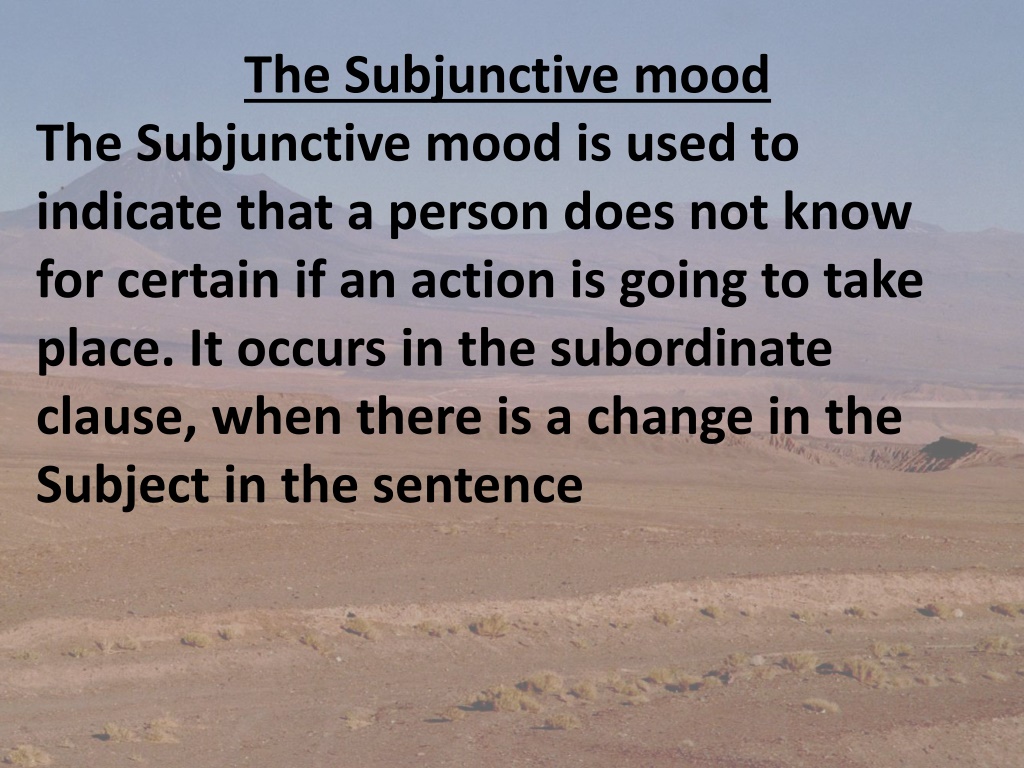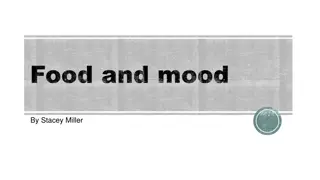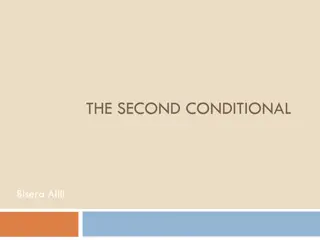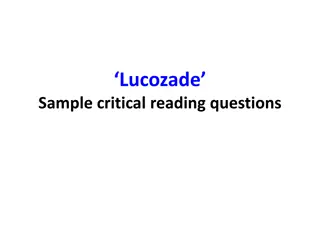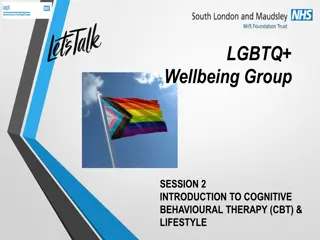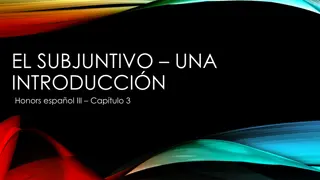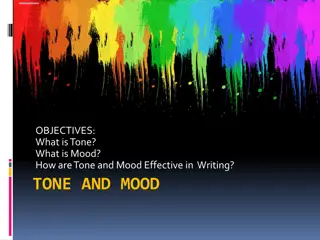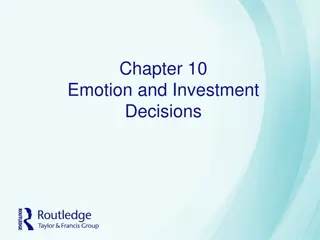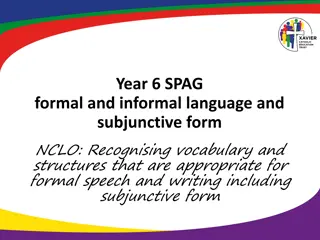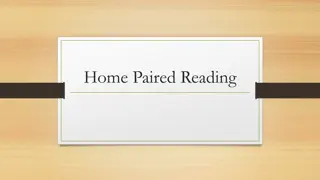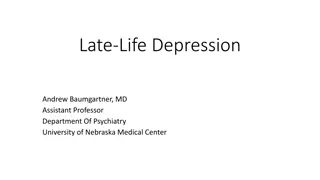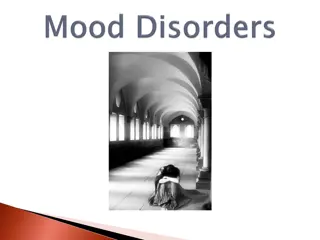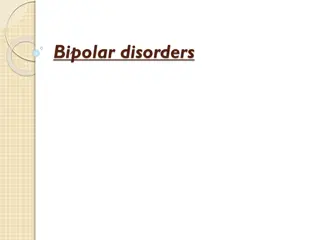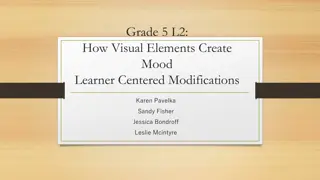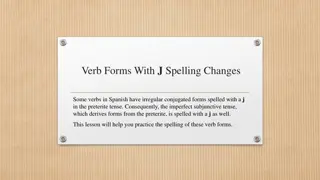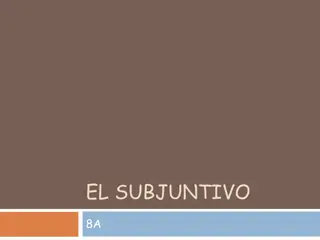the Subjunctive Mood
The subjunctive mood is used to express uncertainty or doubt in a sentence. It is utilized in various scenarios such as expressing doubt, interjection, volition, and emotion. This mood conveys the speaker's uncertainty about an action taking place and is commonly found in subordinate clauses. Explore the four uses of the subjunctive mood and understand how it influences communication and expression.
Download Presentation

Please find below an Image/Link to download the presentation.
The content on the website is provided AS IS for your information and personal use only. It may not be sold, licensed, or shared on other websites without obtaining consent from the author.If you encounter any issues during the download, it is possible that the publisher has removed the file from their server.
You are allowed to download the files provided on this website for personal or commercial use, subject to the condition that they are used lawfully. All files are the property of their respective owners.
The content on the website is provided AS IS for your information and personal use only. It may not be sold, licensed, or shared on other websites without obtaining consent from the author.
E N D
Presentation Transcript
The Subjunctive mood The Subjunctive mood is used to indicate that a person does not know for certain if an action is going to take place. It occurs in the subordinate clause, when there is a change in the Subject in the sentence
The four uses of the Subjunctive can be seen in the anagram DIVE
D oubt I nterjection (Impersonal expression) V olition E motion
Doubt I doubt that Ana will come to the party. I don t think Ana will come to the party. Perhaps Ana will come to the party. It is not certain at this time if Ana will be at the party or not.
Interjection (Impersonal expression) If only Ana would come to the party. Once again, it is not certain at this time if Ana will be at the party or not.
Volition The Subjunctive is also used to show that someone wants someone else to do something.
My mother wants Paula to set the table. Paula told her sister to set the table. In both cases, it is not certain at this time if the 3rd person will complete the action.
Emotion I hope that Ana will come to the party. I would like Ana to come to the party. Once again, it is not certain at this time if Ana will come to the party.
I believe that he will arrive on time. Creo que llegar a tiempo. I don t believe (that) he will arrive on time. No creo que llegue a tiempo.
He wont work here unless he gets a raise. No trabajar aqu a menos que obtenga un aumento.
Perhaps she will call us tonight. Quiz s ella nos llame esta noche. I need an assistant who is punctual. Necesito un asistente quien sea punctual.
I hope I will get a good grade on the final exam. Espero que reciba una nota buena en el examen final.
